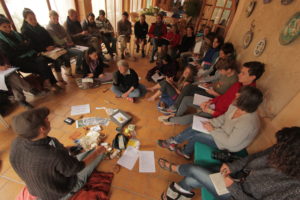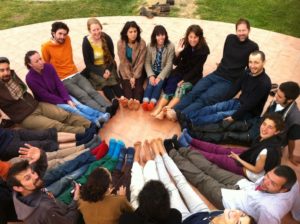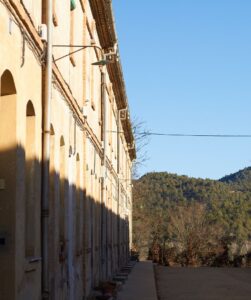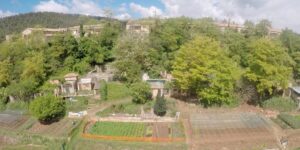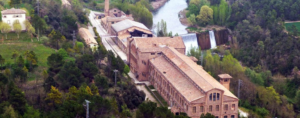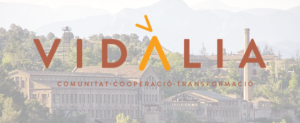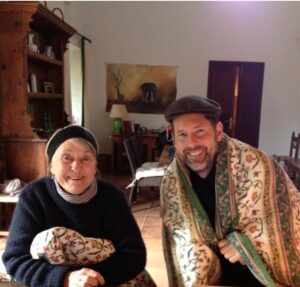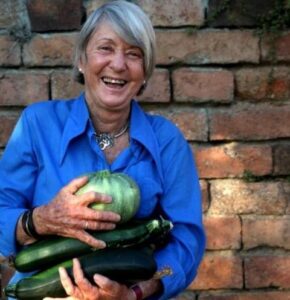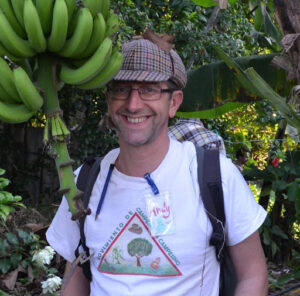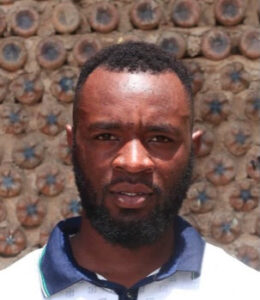Where the content and teaching of permaculture coincide harmoniously with the ethics
Questions/Contact: info [at] 12pdesign.net
Sign-up Here
Training Permaculture Teachers (TPT) is an international teachers training course offered in English and organised by 12P Permaculture Design. The course will be available to PDC holders from any country.
Join us for an intensive training that will provide you with an invaluable toolkit to use in the classroom, as well as life in general. The internationally-renowned teacher Rosemary (Rowe) Morrow’s TPT course draws on her decades of permaculture teaching experience. Whether you are already a teacher, or thinking of becoming one, the TPT training makes teaching a transformative and fun exchange. Classrooms (indoor and outdoor) will never be the same again!
TPT is designed for those who want to teach based on Rosemary’s participatory learning methods. The course will help participants to:
– Change the way they think about education
– Move towards a permaculture teaching career
– Empower others with life-changing skills
– Learn to pass on knowledge of permaculture theory and practice in ways that creates real change in their students and activates entire communities
– Make connections with an international community of permaculture teachers
Where
Vidàlia is a community and a “cooperativa integral” – a cooperative developed to cover the housing, work, and food needs of its members. Located in an old textile factory an hour inland from Barcelona, the site is a village, inspired by the garden city movement, originally built for the workers and now being regenerated as a community. Vidàlia offers ample event and workshop spaces, 3 ha. of agricultural fields, and the enormous old factory itself.
Vidàlia is located alongside the second largest river in Catalunya, surrounded by forests and fields, and has a bus stop just outside the property that provides fast public transport to the city. We have the intention to develop Vidàlia as a permaculture and regenerative agriculture demonstration site…and this is our first course! Your participation will help us to grow. More info about Vidàlia
When
Course Begins: Dinner on the night of Friday, December 10, 2021.
Course Ends: Certificate ceremony on the afternoon of Friday, December 17, followed by optional dinner, party and “No Talent Show”. There will be an optional breakfast available the next morning.
The TPT Facilitation Team
Lead Facilitators Onsite
Alfred Decker
Alfred Decker is an award-winning permaculture designer, a certified educator with the Permaculture Association of Britain, and one of Europe’s leading permaculture educators. Since his first PDC in 1998 in California, Alfred has been involved with social movements and projects throughout Europe and the Americas. He is the founder of the 12 Principles Permaculture Design consultancy, Permacultura Barcelona and the Forest Gardens project at Can Masdeu; is a co-founder of the Spanish Permaculture Academy (Academia de Permacultura Íbera); and was a member of the European Permaculture Teachers Partnership and the Permaculture Council of Europe. Alfred holds a post graduate diploma in sustainable architecture and renewable energy (Centre for Alternative Technology).
After taking this same TPT course with Rosemary Morrow in 2011, he undertook a two year mentorship and later co-facilitated six courses as her assistant, ultimately earning a Diploma in Permaculture Education & Community Development in 2013 through the Blue Mountains Permaculture Institute (Australia). Committed to furthering the TPT course that Rosemary developed, Alfred facilitated 7 more TPT courses as lead facilitator, co-edited the TPT manual, and organised a successful crowdfunding campaign to develop the platform. Rosemary has asked him to organise the TPT trainings in Europe.
Alfred lives at Vidàlia and is thrilled to organise this course at his community!
Candela Vargas
Candela began investigating the mechanisms of life at an early age, and later studied Biology at the University of Granada. She became a passionate activist and fighter for Climate Justice at COP 15 when she moved to Denmark, where she lived for 8 years, completing a masters in Nature Management and a thesis on Forest Garden Design and Implementation. She is a cofounders of FFIRN (Food Forest International Research Network), has been a member of the board of Permaculture Denmark for 5 years, a LAND advisor, a volunteer coordinator at the pioneering urban garden in Copenhagen Byhaven 2200, and involved in many other projects such as Seed Pop Up, Gift Circle, and many other environmental/cultural collectives. Candela has been teaching permaculture in Denmark, Sweden, Iceland, Portugal and Spain. In Italy she enjoyed with Rowe and Alfred a great TPT course that reinforced her teaching skills and got her teaching TPT courses with Alfred.
She loves gathering wild foods, doing acroyoga, and singing her Permaculture songs.
After Denmark, Candela came back to Spain and got involved in the local permaculture networks as REPESEI and RPM. When she met Aitor she finally settled down in a beautiful plot of land in Málaga, you can follow their project Objeto de Luz on their website and Youtube channel. At the moment they are starting an online academy with a first course in wild edibles.
Guest Facilitators Online
Rosemary Morrow
Rosemary is known and loved worldwide as a permaculture teacher, practitioner, and activist. She has travelled the globe for four decades, often in countries shattered by war and disasters, sharing her passion for permaculture and social justice. Her belief is that access to useful knowledge is a basic human right.
Several years ago, Rosemary decided to focus on teacher training courses in order to have a “multiplier effect” believing that the bottleneck keeping permaculture from growing more rapidly is not a shortage of curriculum and experience, but rather a shortage of competent permaculture teachers. So she created this TPT course to give people the skills and confidence needed to take the big step from being a practitioner to becoming a teacher.
Her pragmatic and effective approach working with and being lead by local people has created community-scale permaculture projects and outcomes across a broad range of environments from drylands in Ethiopia, to the wet tropics of Vietnam. The knowledge and experience she brings to creating abundance, food security and successful sustainable farming models is perhap. She is the author of the Earth User’s Guide to Permaculture, the Earth User’s Guide to Teaching Permaculture, The Family Seedsaving Book, and A Good Home Forever.
Starhawk
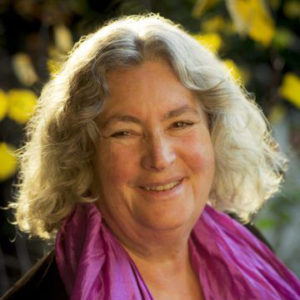 Starhawk is an author, activist, permaculture designer and teacher, and a prominent voice in modern earth-based spirituality and ecofeminism. She is the author or co-author of thirteen books, including The Spiral Dance: A Rebirth of the Ancient Religion of the Great Goddess and the ecotopian novel The Fifth Sacred Thing, and its sequel City of Refuge.
Starhawk is an author, activist, permaculture designer and teacher, and a prominent voice in modern earth-based spirituality and ecofeminism. She is the author or co-author of thirteen books, including The Spiral Dance: A Rebirth of the Ancient Religion of the Great Goddess and the ecotopian novel The Fifth Sacred Thing, and its sequel City of Refuge.
Her most recent non-fiction book is The Empowerment Manual: A Guide for Collaborative Groups, on group dynamics, power, conflict and communications.
Starhawk
Andy Goldring
Andy Goldring is the Chief Executive of the Permaculture Association of Britain, and newly in post at the Our Future Leeds £2.5M climate action fund project. Andy works on collaborative design, focussing on ecological and ethical solutions, food systems, governance and the organisation of social networks and events to achieve change. He has been an active teacher since 1995 and designed and taught a series of six Permaculture Educator courses in Denmark. His main teaching work is in Leeds where he works with a great team of fellow teachers, practitioners and facilitators on a PDC that has been running annually since 2006.
Paulinho Muzaliwa Josaphat
Paulinho is a permaculture teacher certified by the Permaculture Education Institute; a Warm Data host certified and accredited by the Bateson International Institute; an Ambassador in SEEDS regenerative financial ecosystem; and facilitator at Unidos Social Innovation Center a refugee-led organisation that aims to empower refugees through inclusive entrepreneurial skills in order to enable them to create jobs and enhance their livelihoods.
Habiba Youssef Abdel Aal
Habiba holds a degree in Economics and Sustainable Development, and has worked in international development focusing on the regenerative and sustainable use of natural resources for income generating activities aimed for the reduction of poverty in rural areas. She is the co-founder of La Bolina, an Andalusia-based association working on land regeneration, capacity and awareness building and socio-economical integration of migrants and refugees. Habiba is an expert in agroecology market gardens.
Cathrine Dolleris
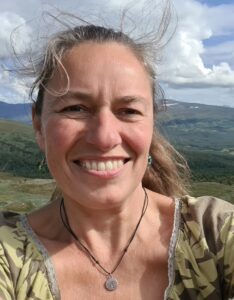 Cathrine is dedicated to regenerating life supporting systems in nature and in society. She is a permaculture diploma mentor, based in Denmark, and currently have diploma apprentices in six different countries. Teaching and mentoring permaculture has become a big part of her livelihood. Recently she has started the Nordic Permaculture Academy as a collaboration with Nordic colleagues.
Cathrine is dedicated to regenerating life supporting systems in nature and in society. She is a permaculture diploma mentor, based in Denmark, and currently have diploma apprentices in six different countries. Teaching and mentoring permaculture has become a big part of her livelihood. Recently she has started the Nordic Permaculture Academy as a collaboration with Nordic colleagues.
She is active in the Danish Association on the board of trustees and implement a Danish LAND (Learning, Activities, Network, Demonstration) project and help LAND networks start in other countries and do fundraising for permaculture nationally and internationally.
Her background in geography, extensive travels and working within governmental and non-governmental sectors has given her experiences with especially poverty, gender, community development, ethnic minorities and the environment in a global context.
She took an interest in permaculture first time in South Africa in 2000 while working with Zulu farmers and have studied and applied permaculture principles in my later work in Nepal and Vietnam. Today she aims for partial self-sufficiency at her own small homestead and LAND center in Denmark.
This course is for…
PDC holders in any of the following fields: teachers and students of architecture, landscape design, school/community gardeners, local government community development officers, ecology and other disciplines including geography, regenerative agriculture and agroforestry as well as permaculture design. If you’re looking to do any type of sustainability or permaculture education/communication, this is the course you’ve been waiting for!
You will learn how to:
- Design a short or a long course
- Develop clear course outcomes and ethics
- Adopt appropriate body behaviour and use nonviolent communication
- Prepare learning resources and use teaching aids effectively
- Organise classroom and learning environments
- Work with a broad range of people from different cultures and backgrounds
- Draw on strategies that promote thinking and integrate practical experience
- Deliver clear explanations and concepts
- Explain the structure and function of the Permaculture Design Course
- Give engaging digital presentations
- Debrief, appraise, and apply other teaching techniques
- Work collaboratively in groups
- Practice teaching in a safe, supportive community of peers
We require all students to have completed a PDC (anywhere in the world) before the course starting date.
Fees
We offer a sliding scale for the course, and ask participants to offer what they can pay. The scale is between €650-€900 for this professional, certified training. Those who can afford to pay more on the higher end of the scale will help those who can only pay less. The sliding scale recognises the differences in economic reality depending on what country a participant comes from, as well as their individual circumstances, so this is a practical way that people with more resources can act in solidarity. We don’t offer reduced-fee work exchange options because the TPT is an intense course, and we want every participant to be able to able to get the most out of it and not have to sacrifice learning because they can’t pay a certain amount. However, if you want to apply for a course scholarship, please get in touch with us.
Your fees include:
- Three healthy meals a day
- A life-changing learning experience
- A TPT Certificate issued by the Blue Mountains Permaculture Institute (Australia), the Permaculture Association of Britain, and 12P Permaculture Design
- A new generation of permaculture teachers and doers for you to join!
- A free copy of Permaculture Magazine
- Participants who subscribe to Permaculture Magazine receive a 30% discount on Permanent Publications books and free postage and packing for the UK
- Option to buy a printed copy of Rosemary’s TPT Manual at the cost of printing (free download here)
In this time of climate emergency, we request that those who fly to attend the course will make a financial contribution to the Vidàlia Climate Fund, which will be presented during the TPT. The fund will promote carbon-friendly, regenerative agriculture here at the site.
Accommodation
You can choose to lodge in shared dormitory bedrooms or in a private bedroom. The cost of the dormitory is including in the price of the course, and a private bedroom costs 15€ per night extra (if you have a medical need for a private bedroom and can’t afford the extra cost, please contact us).


